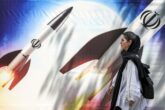October 02, 2017
Tunisia Passes Controversial Law, Undermining Democratic Transition
Tunisia’s parliament recently passed a controversial law effectively granting amnesty to public officials involved in corruption under the Bourguiba and Ben Ali dictatorships from 1955 through 2010. The law thus ensures impunity for the very system of government corruption that the Tunisian people sought to upend in their revolution of 2010 to 2011.
As a relatively stable, democratic country in a tumultuous region, Tunisia is critical to the United States’ efforts in North Africa to counter ISIS, reduce drug smuggling and address migrant issues. A successful and peaceful democratic transition in Tunisia would serve as a model not just in the Arab world, but for any country emerging from dictatorship. Yet many ordinary Tunisians are losing faith that the revolution can deliver on its promises of economic justice. Some Tunisians voice a reluctant nostalgia for the Ben Ali regime–mainly in response to the ailing economy and a sense of greater insecurity due to the terrorist threat.
Read the full op-ed in Lawfare.
More from CNAS
-
Sharper: Iran and the Axis of Upheaval
Despite suffering geopolitical setbacks since Hamas’s October 7 attacks on Israel, a potentially nuclear Iran continues to pose a significant threat to U.S. and allied interes...
By Delaney Soliday & Charles Horn
-
Ziemba: Trump, Gaza Plan Unlikely to Come to Fruition
Rachel Ziemba, an Adjunct Senior Fellow at the Center for a New American Security (CNAS), discusses Donald Trump's proposal that the US should take control of the devastated G...
By Rachel Ziemba
-
Sharper: Trump's First 100 Days
Donald Trump takes office in a complex and volatile global environment. Rising tensions with China, the continued war in Ukraine, and instability in the Middle East all pose s...
By Charles Horn
-
Convene the E3 to Address the Iranian Nuclear Threat
In its first 100 days, the Trump administration should convene the United Kingdom (UK), France, and Germany—the E3—to coordinate a strategy for dealing with Iran’s nuclear pro...
By Jonathan Lord




